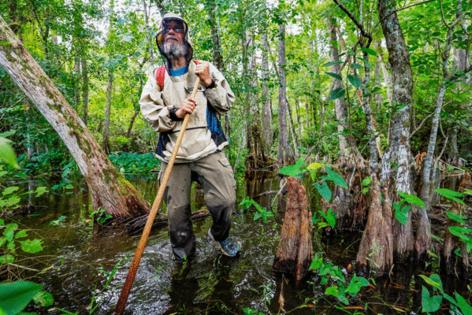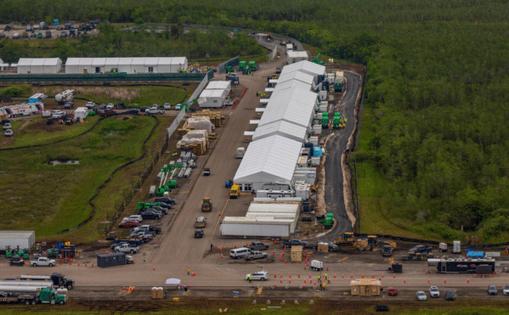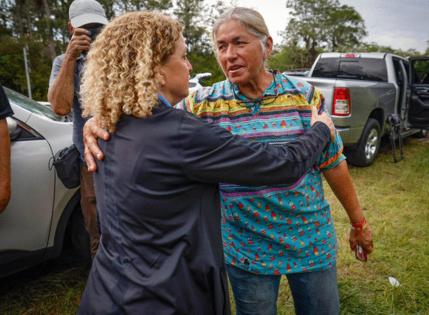Miccosukee Tribe moves to join environmental lawsuit against Alligator Alcatraz
Published in News & Features
The Miccosukee Tribe is seeking to join a lawsuit against the state and federal governments over the hastily built migrant detention facility in the Everglades — a place the Miccosukee call home.
The Miccosukee Tribe of Indians of Florida filed a motion on Monday to join nonprofits Friends of the Everglades, Center for Biological Diversity and Earthjustice as plaintiffs in the lawsuit that accuses the state of Florida and federal agencies of skirting environmental regulations to build Alligator Alcatraz.
“The Tribe remains committed to ensuring its traditional lands are not used as a detention facility,” the tribe said in a statement.
Florida is operating the facility in Big Cypress National Preserve, a federally protected section of the Florida Everglades. “If people get out, there’s not much waiting for them other than alligators and pythons. Nowhere to go, nowhere to hide,” Attorney General James Uthmeier said in a video posted on X in June announcing the site.
But the Miccosukee beg to differ. There are over a dozen traditional Indian villages surrounding Alligator Alcatraz, including one village and school bus stop 1,000 feet away from the facility’s entrance, according to the tribe’s statement. Traditional ceremonial grounds and 11 villages are within three miles of the facility.
“The Miccosukee Tribe is committed to ensuring that our ancestral lands in Big Cypress will not become a permanent detention facility,” Talbert Cypress, the Miccosukee chairman, said in a statement issued Tuesday. “We have reached out to the State and Federal governments and expressed our concerns, but we have not yet been advised of a closure date. As a consequence, we must take legal action to compel the parties to remove this facility, given its outsized budgetary, environmental, community safety, and logistical impacts. We are hopeful that the administrations will change course and preserve these lands.”
The Miccosukee argue in their motion to intervene that “the construction and operation of a detention facility without necessary environmental studies potentially poses a substantial threat to the rights and interests of the Tribe and the livelihood of Tribal members who live adjacent thereto.”
The Miccosukee people have traveled from north Florida to the Everglades to fish, hunt and hold sacred ceremonies “since time immemorial,” the document states. The Miccosukee were relocated to the Everglades during the Seminole Wars. The state of Florida has legally recognized the Miccosukee’s right to live on and use the land, including Big Cypress, for over a century, the motion says.
Though the detention facility is expected to hold thousands of people in a sparsely populated area, the state and federal governments have not conducted any studies to determine how the construction and operation of Alligator Alcatraz will impact the nearby village residents and students at the Miccosukee Indian School, court documents say.
The tribe argues that the detention facility is likely to impact the daily lives of village residents, with concerns that include water pollution and significantly increased traffic on the two-lane Tamiami Trail, which residents rely on to evacuate during emergencies.
Gov. Ron DeSantis has said Alligator Alcatraz will have “zero impact on the Everglades.” But environmental groups and experts say the facility puts endangered and threatened species in the area, like the Florida panther, the bonneted bat and Everglade snail kite, in serious danger.
Immigration advocates have also raised concerns over the facility. Detainees, many of whom have no criminal record, described harsh and disgusting conditions inside the facility, like massive bugs, extreme heat and malfunctioning toilets, during the first days of operation. Immigration attorneys told the Herald they can’t contact their clients.
_____
©2025 Miami Herald. Visit miamiherald.com. Distributed by Tribune Content Agency, LLC.














Comments